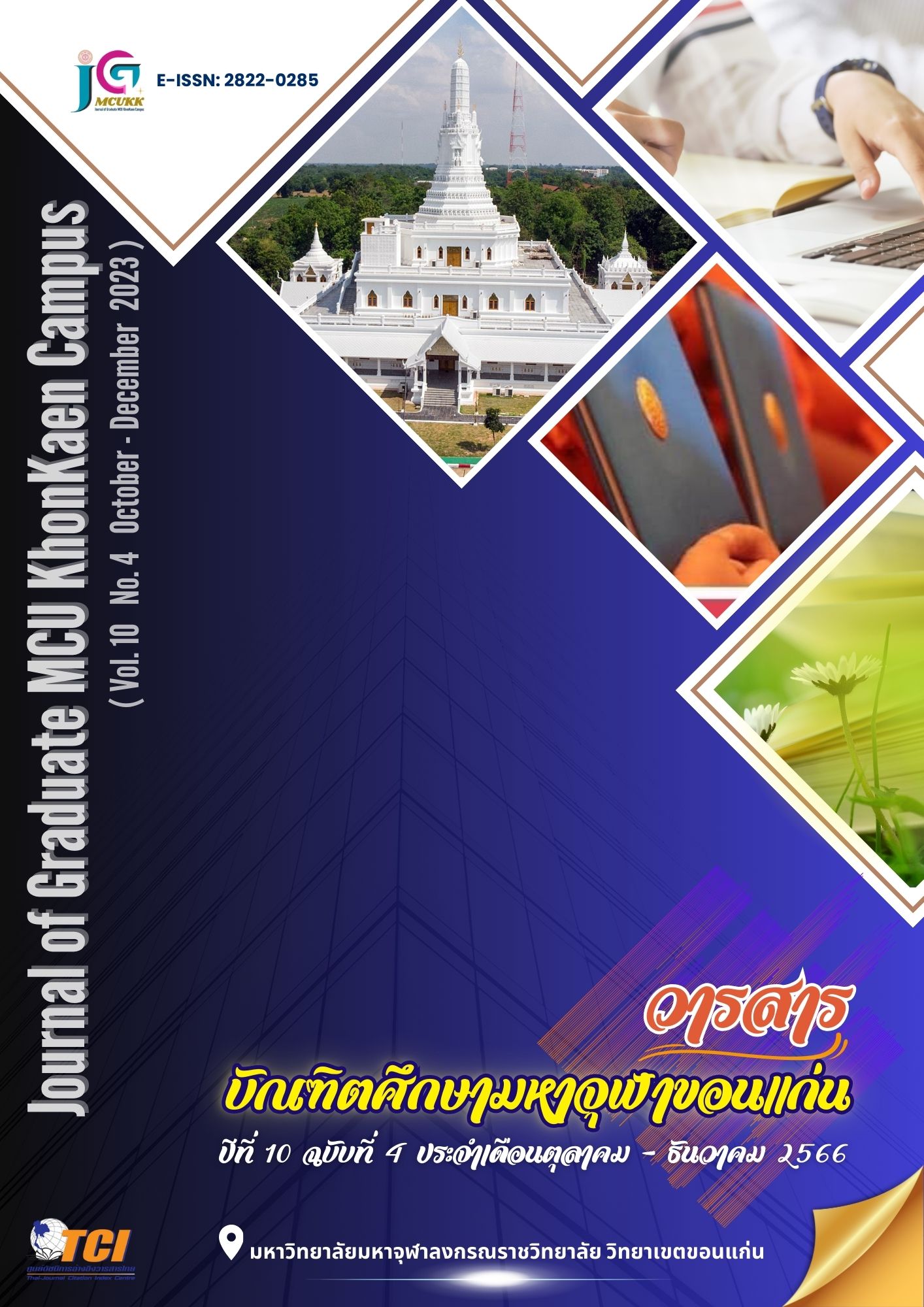การวิเคราะห์ปรัชญาการเมืองของจอห์น ล็อค
Main Article Content
บทคัดย่อ
งานวิจัยนี้ มีวัตถุประสงค์ 1) เพื่อศึกษาแนวคิดทฤษฎีปรัชญาการเมือง 2) เพื่อศึกษาปรัชญาการเมืองในทรรศนะของจอห์น ล็อค 3) เพื่อวิเคราะห์ปรัชญาการเมืองในทรรศนะของจอห์น ล็อค เป็นการวิจัยเชิงเอกสาร ศึกษาข้อมูลจากเอกสารปฐมภูมิ และทุติยภูมิ วิเคราะห์ข้อมูลเชิงพรรณนาตามหลักอุปนัยวิธี
ผลการวิจัยพบว่า
- การเมืองการปกครองเป็นการจัดสรรอำนาจเพื่อประโยชน์สูงสุดของประชาชน ด้วยการกำหนดและบังคับใช้กฎระเบียบของสังคมอย่างยุติธรรม เสมอภาค และเท่าเทียม การเมืองจึงเป็นกระบวนการเกี่ยวกับการตัดสินใจในจัดสรรทรัพยากรธรรมชาติ และควบคุมการดำรงชีวิตร่วมกันในสังคม ด้วยการปฏิบัติตามกติกา ตลอดจนการยอมรับการใช้อำนาจในสังคม
- ปรัชญาการเมืองในทรรศนะของจอห์น ล็อค ได้เสนอแนวคิดเกี่ยวกับการได้มาซึ่งรัฐบาลอันชอบธรรมที่มาจากสมาชิกในสังคม และการตัดสินหรือวินิจฉัยในเรื่องต่างๆ ต้องอาศัยมติของสมาชิกในสังคมซึ่งได้มาตามเสียงข้างมากเป็นตัวชี้วัด
- จอห์น ล็อค ให้ทัศนะว่า สิทธิพื้นฐานของการมีส่วนร่วมในการมีผลประโยชน์ร่วมกันของปัจเจกชนในสังคม ประกอบด้วย 1) สิทธิในตัวเอง ที่จะพิทักษ์รักษาไว้ซึ่งชีวิตร่างกายให้อยู่รอด 2) สิทธิตามธรรมชาติ ทุกคนต้องมีเสรีภาพอย่างเต็มเปี่ยมในการใช้ทรัพย์สินและการแสดงออกทางร่างกายภายใต้กฎธรรมชาติ 3) สภาวะแห่งความเสมอภาค เป็นสภาวะธรรมชาติของมนุษย์ที่มีความเท่าเทียมกันในสิทธิเสรีภาพที่สมบูรณ์ 4) สิทธิในทรัพย์สิน ในตัวของตนเอง เป็นสิ่งที่ไม่มีใครเป็นเจ้าของร่วม แรงงานจากร่างกายของเขาและผลงานจากน้ำมือของเขาเป็นของเขาอย่างถูกต้อง 5) สิทธิทางการเมืองการปกครอง มนุษย์มีสิทธิอำนาจในการเมืองการปกครองและอำนาจในการตรวจสอบการตัดสินใจในระบบการเมืองได้อย่างอิสระ และปัจจุบันถือได้ว่าแนวคิดนี้เป็นส่วนสำคัญที่พัฒนาไปสู่แนวคิดว่าด้วย ปฏิญญาสากลเกี่ยวกับสิทธิมนุษยชนอย่างสมบูรณ์
Article Details

อนุญาตภายใต้เงื่อนไข Creative Commons Attribution-NonCommercial-NoDerivatives 4.0 International License.
เอกสารอ้างอิง
กวี อิศริวรรณ. (2528). ความคิดทางการเมือง. กรุงเทพฯ: สยามบรรณการ.
ชยนต์ ประดิษฐศิลป์. (2561). ความรู้พื้นฐานทางรัฐศาสตร์ : มนุษย์กับการเมือง. กรุงเทพฯ: จุฬาลงกรณ์มหาวิทยาลัย.
โชติสา ขาวสนิท. (2543). การศึกษาแนวคิดเรื่องสิทธิเสรีภาพในเหตุการณ์ตุลาคม 2516 และพฤษภาคม 2535 โดยเปรียบเทียบกับแนวคิดทางการเมืองของจอห์น ล็อค. (วิทยานิพนธ์รัฐศาสตรมหาบัณฑิต). กรุงเทพฯ: จุฬาลงกรณ์มหาวิทยาลัย.
ปานทิพย์ ศุภนคร. (2545). ปรัชญาเบื้องต้น. กรุงเทพฯ: มหาวิทยาลัยรามคำแหง.
ปานทิพย์ แซ่โค้ว. (2542). การศึกษาเชิงเปรียบเทียบเชิงปรัชญา เรื่อง ธัมมิกราชาและราชาปราชญ์. (วิทยานิพนธ์ศิลปศาสตรมหาบัณฑิต). กรุงเทพฯ: มหาวิทยาลัยเชียงใหม่.
พระมหามฆวินทร์ ปุริสุตฺตโม. (2559). วิเคราะห์แนวคิดเรื่องเสรีภาพของจอห์น ล็อค. (วิทยานิพนธ์พุทธศาสตรดุษฎีบัณฑิต). นครปฐม: มหาวิทยาลัยมหามกุฏราชวิทยาลัย.
เสถียร หอมขจร และคณะ. (2528). ทฤษฎีการเมืองและจริยธรรม 2. กรุงเทพฯ: มหาวิทยาลัยรามคำแหง.
เสน่ห์ จามริก (แปล). (2515). ความคิดทางการเมืองจากเพลโตถึงปัจจุบัน. กรุงเทพฯ: มหาวิทยาลัยธรรมศาสตร์.
John Locke. (1970). Two Treatises of Government. P. Laslett (ed.),. Cambridge: Cambridge University.

